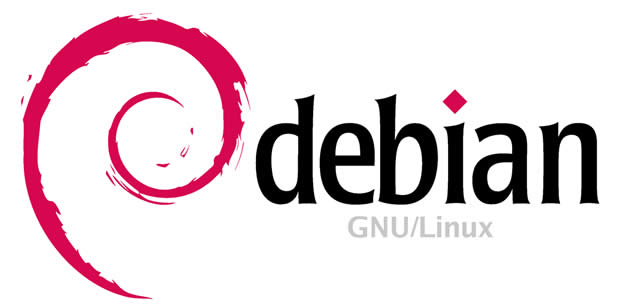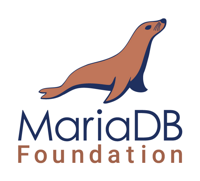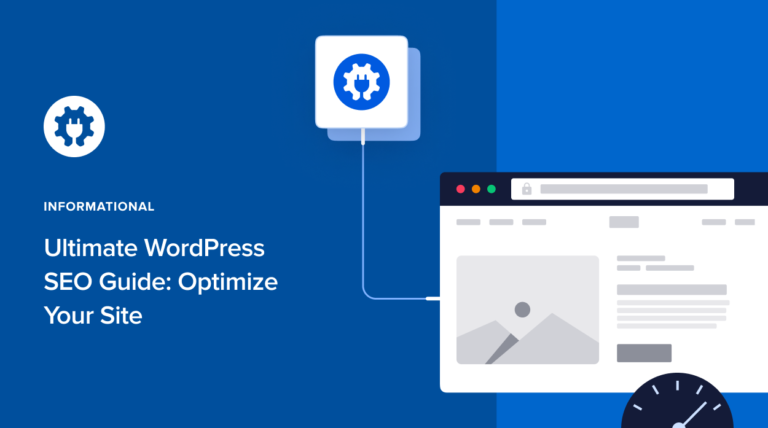In today’s digital age, having a strong online presence is crucial for the success of any website.
SEO (Search Engine Optimization) is essential, especially for developers, to ensure that your website ranks well on search engine results pages.
Explore key SEO concepts, best practices for implementing SEO in web development, and top tools and resources to optimize your site effectively.
Let’s dive in!
Key Takeaways:
- Understand the connection between SEO and web development to create a successful website.
- Implement key SEO concepts such as keyword research, on-page optimization, site speed, mobile responsiveness, and structured data markup.
- Utilize tools like Google Search Console, Google PageSpeed Insights, Moz Pro, SEMrush and Ahrefs to optimize your website for better search engine rankings.
Why is SEO Important for Developers?
Understanding the importance of SEO for developers is crucial in today’s digital landscape where visibility and ranking play a significant role in driving organic traffic and user engagement.
SEO, or Search Engine Optimization, is the practice that enables websites to be found more easily by search engines like Google, Bing, or Yahoo. By optimizing various aspects such as content, metadata, and website structure, developers can significantly boost a site’s visibility online. This, in turn, leads to higher organic traffic as the site appears higher in search engine results, attracting more potential visitors. Incorporating SEO best practices in web development projects not only enhances the chances of a site being discovered but also improves the overall user experience and engagement, ultimately benefiting both users and developers alike.
Understanding the Connection between SEO and Web Development
The connection between SEO and web development is a symbiotic relationship that focuses on optimizing web pages to enhance search engine visibility and user experience.
When crafting a website, developers work closely with SEO specialists to ensure proper structure, meta tags, and schema markup are implemented. These elements not only improve search rankings but also contribute to a seamless user journey. The performance of a website, from loading speed to mobile responsiveness, is also an integral part of this partnership. By building sites that are both technically sound and user-friendly, companies can create a solid digital presence that attracts and retains visitors.”
Key SEO Concepts for Developers
Developers need to grasp key SEO concepts such as keyword research, on-page optimization, site speed, mobile responsiveness, and structured data markup to create search-friendly websites.
Understanding the nuances of keyword research is crucial for developers as it forms the foundation of a successful SEO strategy. By looking into targeted keywords and user search intent, developers can tailor the website content to match what potential visitors are looking for. On-page optimization techniques like meta tags, headings, and image optimization further enhance the site’s visibility to search engines, improving rankings and organic traffic.
Keyword Research
Keyword research is a foundational aspect of SEO that involves identifying relevant terms and phrases to optimize web content for search engines and user queries.
Developers play a crucial role in leveraging keyword research to boost the visibility and ranking of websites. By utilizing various tools such as Google Keyword Planner, SEMrush, and Ahrefs, developers can analyze search volume, competition, and trends, enabling them to choose the most effective keywords for their content.
- One key strategy for developers is to focus on long-tail keywords, which are more specific and less competitive, driving targeted traffic to their websites.
- Integrating relevant keywords and entities naturally into the content is essential for improving its relevance and aligning with search algorithms, thus increasing the chances of ranking higher in search results.
- Conducting competitor analysis can provide valuable insights into what keywords are performing well in the industry and help developers tailor their own keyword strategy accordingly.
On-page Optimization
On-page optimization focuses on refining elements within a web page such as meta tags, URL structure, heading tags, and content to improve search engine visibility and user experience.
Meta tags play a crucial role in communicating the content of a web page to search engines, impacting its ranking. By including relevant keywords and descriptions in meta titles and descriptions, developers ensure that their pages are more likely to be indexed accurately. URL structuring is another vital aspect that influences both search engine bots and user navigation. A clear and concise URL that includes targeted keywords can enhance the page’s SEO value. Heading tags usage, such as H1, H2, etc., helps structure the content for both users and search engines, providing a hierarchical organization.
Content optimization techniques involve creating high-quality, engaging material that incorporates targeted keywords naturally. By focusing on the user’s intent and needs, developers can enhance the user experience while catering to search engine algorithms. Integrating relevant entities within the content can also strengthen its context and relevance, improving the overall search engine ranking. Through on-page optimization, developers have the opportunity to create web pages that are not only search engine-friendly but also user-friendly, resulting in increased visibility and better user engagement.
Site Speed and Performance
Optimizing site speed and performance is crucial for SEO as it affects user experience, bounce rates, and search engine rankings, making it essential for developers to prioritize speed enhancements.
Improving site speed not only boosts SEO but also leads to higher conversion rates, as visitors tend to stay longer on faster-loading sites. To achieve this, developers can leverage various optimization strategies such as minification of CSS and JS files, optimizing images, implementing browser caching, and reducing server response times.
Tools like Google PageSpeed Insights and GTmetrix can help identify performance bottlenecks and provide actionable insights for improvement. Techniques like lazy loading of images and deferring JavaScript execution can further optimize load times and enhance overall user experience.
Mobile Responsiveness
Ensuring mobile responsiveness is integral for SEO success, as mobile-friendly websites rank higher in search results and cater to a growing mobile user base, urging developers to prioritize responsive design.
Optimizing websites for mobile devices involves adhering to responsive design principles such as flexible grids, fluid images, and media queries to ensure a seamless user experience across various screen sizes and orientations.
Considering user experience aspects like fast page loading times, clear navigation, and touch-friendly interactions is crucial for engaging mobile visitors and decreasing bounce rates.
Implementing best practices like optimizing images for mobile, leveraging browser caching, and minimizing server response times can enhance mobile site performance and further boost SEO rankings.
Structured Data Markup
Implementing structured data markup enhances search engine understanding of website content, leading to rich snippets, improved visibility, and higher click-through rates, making it a valuable practice for developers.
Structured data markup, often implemented using schema.org vocabulary, enables developers to provide context to search engines about the content on their websites. By incorporating schema markup elements, such as product details, reviews, events, and more, websites can achieve rich snippets in search results, which offer users a preview of the page content directly in the search listing.
These extra details displayed in rich snippets not only make the search results more informative but also attract more user attention, which can translate into higher click-through rates and increased traffic to the site. With structured data, developers can influence the way their content appears in search results, enhancing its relevance and visibility.
Best Practices for Implementing SEO in Web Development
Adopting best practices such as using SEO-friendly URLs, optimizing page titles, leveraging header tags, creating high-quality content, and enhancing user experience are integral for effective SEO implementation in web development.
Regarding URL optimization, it is crucial to keep them concise, descriptive, and relevant to the page content, making it easier for search engines to crawl and understand the context.
Meta tags play an essential role in providing metadata to search engines, guiding them on how to display your website in search results.
Focusing on content quality not only improves search engine rankings but also engages users and encourages them to spend more time on your site.
Effective user experience enhancements, such as fast loading times, mobile responsiveness, clear site navigation, and intuitive design, can significantly impact SEO performance.
Incorporating relevant keywords and entities strategically throughout your content helps search engines better understand the topic and context of your website, improving its overall visibility.
Use SEO-friendly URLs
Employing SEO-friendly URLs that are descriptive, concise, and optimized with relevant keywords enhances search engine visibility and user understanding, making it easier for developers to create accessible and structured URLs.
When structuring URLs for a website, it is crucial to include targeted keywords strategically in the web address. By incorporating specific keywords directly into the URL, you not only improve its relevance to search engines but also provide a clear indication to users about the content they can expect on that particular web page.
Utilizing hyphens to separate words in URLs can significantly enhance readability and ensure that search engine crawlers can easily interpret the words in the address. This practice helps in creating a cohesive and user-friendly website navigation experience, which ultimately contributes to improved search engine rankings.
Optimize Page Titles and Meta Descriptions
Crafting compelling page titles and meta descriptions with relevant keywords and enticing copy is essential for improving click-through rates, search visibility, and user engagement, requiring developers to focus on meta tag optimizations.
Optimizing page titles and meta descriptions play a crucial role in enhancing the overall SEO strategy of a website. These elements not only help search engines understand the relevance of the content but also influence how users interact with the search results. By incorporating relevant keywords strategically within page titles and meta descriptions, websites can attract more qualified traffic and improve their search engine rankings.
Creating persuasive and compelling meta descriptions can entice users to click through to the website, increasing the likelihood of conversions. It is important to craft unique and descriptive meta tags that accurately reflect the content of the page while capturing the user’s attention.
Utilize Header Tags
Leveraging header tags such as H1, H2, and H3 appropriately throughout content structure aids in organizing information, improving readability, and signaling relevance to search engines, making it a pivotal on-page optimization technique for developers.
By strategically implementing header tags in your content, you create a clear hierarchy that guides both users and search engines through the page. The H1 tag, usually reserved for the main title, establishes the overall topic, setting the tone for the content that follows. Subsequent
- H2 and H3 tags
then break down the information into subtopics and further details, enhancing the user experience by offering a structured flow of information.
Not only does this enhance readability, but it also improves SEO by providing search engines with valuable clues about the content’s context and importance. When search engines crawl your site, they rely on these header tags to understand the semantics and relevance of your content, which in turn can influence your ranking in search results.
Create High-Quality and Relevant Content
Developing high-quality, relevant content that caters to user intent, incorporates target keywords, and provides value is essential for SEO success, urging developers to focus on content creation strategies that resonate with the target audience.
Content planning plays a pivotal role in this process, as it involves analyzing popular topics within the industry, identifying relevant trends, and understanding the needs of the target audience.
By integrating relevant keywords and entities seamlessly into the content, developers can enhance the depth and context, making it more attractive to search engines like Google, Bing, or Yahoo. Aligning the content with user intent ensures that visitors find the information they are looking for, thus improving user experience and increasing the likelihood of conversions.
It is crucial to emphasize the value proposition throughout the content to engage users and differentiate your brand from competitors, fostering trust and credibility.
Improve User Experience
Enhancing user experience through intuitive navigation, engaging design elements, fast load times, and mobile responsiveness contributes to improved SEO performance and higher user satisfaction, prompting developers to prioritize user-centric optimizations.
Creating a seamless user journey with an easy-to-navigate structure not only enhances user satisfaction but also improves accessibility, an essential factor for SEO ranking. User-centric design principles play a crucial role in fostering user engagement and retention. By optimizing mobile responsiveness, developers ensure that users can access the website effortlessly across various devices, contributing to better search engine visibility. Speeding up load times not only reduces bounce rates and improves conversion rates but also signals search engines about the site’s efficiency and reliability.
Tools and Resources for SEO in Web Development
Utilizing tools like Google Search Console, Google PageSpeed Insights, SEMrush, Moz Pro, and Ahrefs offers developers valuable insights and functionalities to optimize websites, track performance, and enhance SEO strategies.
Google Search Console is an essential tool that helps in monitoring a website’s presence in Google search results, providing data on indexing status, organic search performance, and issues that may affect the site’s visibility.
Google PageSpeed Insights evaluates a website’s speed on both desktop and mobile devices, offering suggestions on how to improve load times and user experience.
SEMrush facilitates in-depth keyword research, competitive analysis, and backlink opportunities, enabling developers to refine their SEO strategies.
Moz Pro offers tools for keyword tracking, site audits, and rank tracking, aiding in optimizing on-page and off-page aspects of SEO.
Ahrefs provides comprehensive backlink analysis, competitive analysis, and keyword research, assisting developers in understanding their website’s performance and improving its search engine rankings.
Google Search Console
Google Search Console provides developers with crucial data on website performance, indexing status, and search visibility, enabling them to monitor, analyze, and optimize their sites for better search engine rankings.
One of the key functionalities of Google Search Console is the ability to analyze search traffic data, including identifying which queries are leading users to your site and the click-through rates for different keywords. This information is invaluable for understanding user behavior and refining your content strategy to attract more organic traffic. The indexing insights provided by Google Search Console help developers detect and resolve crawling issues that may prevent certain pages from appearing in search results.
Google PageSpeed Insights
Google PageSpeed Insights offers developers insights into website loading speeds, performance optimizations, and user experience enhancements to address speed-related SEO issues and improve site performance.
Through a sophisticated blend of performance data analysis and user-centric metrics, Google PageSpeed Insights provides developers with detailed reports on various aspects affecting site speed. It evaluates the loading times of a webpage and offers actionable recommendations on how to improve performance. By focusing on critical performance metrics such as First Contentful Paint (FCP) and Time to Interactive (TTI), developers can pinpoint bottlenecks and streamline their code, images, and server configurations for faster loading times.
SEMrush
SEMrush equips developers with competitive analysis tools, keyword research functionalities, and site auditing capabilities to refine SEO strategies, track performance, and gain insights for effective optimization.
One of the standout features of SEMrush for developers is its competitive analysis tools, allowing them to closely examine their competitors’ online presence and strategies. These tools provide valuable data on keywords, traffic sources, and advertising strategies used by competitors, enabling developers to fine-tune their own SEO approach.
SEMrush offers robust keyword research functionalities that help developers identify high-potential keywords, analyze search volume trends, and discover long-tail keywords for better optimization. By leveraging these tools, developers can enhance their content strategy and improve organic search visibility.
Moz Pro
Moz Pro offers developers a suite of SEO tools for site audits, keyword research, rank tracking, and link analysis, give the power toing them to improve site performance, visibility, and search engine rankings.
One of the key functionalities of Moz Pro is its comprehensive site auditing feature. This tool allows developers to identify technical issues, optimize on-page elements, and enhance overall website health. By leveraging site audits, developers can uncover critical issues that may be hindering their site’s performance and take necessary actions to rectify them.
Ahrefs
Ahrefs provides developers with comprehensive backlink analysis, keyword research tools, and site auditing features to enhance SEO strategies, evaluate competitor performance, and optimize website visibility.
Backlink analysis is a crucial aspect for developers, enabling them to understand the quality and quantity of links pointing to their website, which in turn impacts search engine rankings.
The keyword research tools offered by Ahrefs allow developers to identify relevant keywords for their content, aiding in targeting the right audience and boosting organic traffic.
Site auditing features help to pinpoint technical SEO issues, ensuring that the website is optimized for search engine crawlers and user experience.
Ahrefs provides valuable competitor insights, allowing developers to analyze competition strategies, identify opportunities, and stay ahead in the digital landscape.





